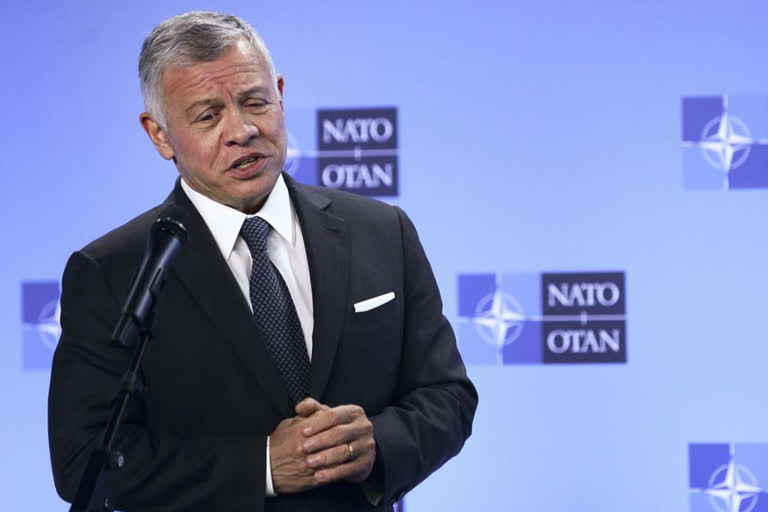Amman:Jordan's King Abdullah II denied Monday any impropriety in his purchase of luxury homes abroad, an effort to contain a budding scandal over reports of lavish spending at a time when he has sought international aid to pull his impoverished country out of recession and help it cope with soaring unemployment.
The revelations on Sunday of property purchases reportedly worth more than USD 100 million come at a delicate time for Abdullah, whose popularity took a hit earlier this year when his half-brother accused the country's leadership of corruption and could unsettle Jordan's critical relationship with the international community. The country is seen as a stable, pro-Western bulwark in a volatile region — but it relies on billions in aid, underscored by the fact that Abdullah was meeting with the president of the World Bank when the report was published.
The purchases were made public by the International Consortium of Investigative Journalists, which reported that hundreds of world leaders, politicians, billionaires, celebrities, religious leaders and drug dealers have been hiding their investments in mansions, exclusive beachfront property, yachts and other assets for the past quarter-century.
Abdullah said he kept quiet about the transactions reported because of security concerns. He also said no public funds were used. “Any allegations that link these private properties to public funds or assistance are baseless and deliberate attempts to distort facts,” a statement from the Royal Hashemite Court said Monday. It called any such suggestions “defamatory and designed to target Jordan's reputation as well as his majesty's credibility.”
Also Read:Jordan's foreign minister meets Saudi counterpart
But in a sign the palace was concerned by the report, Jordanian media, much of which is directly or indirectly controlled by the palace, made no mention of it. Even independent Jordanian media outlets engage in self-censorship, avoiding criticism of the king, the royal family and the security forces. The report from the consortium is based on a review of nearly 12 million files obtained from 14 firms located around the world, the consortium said. It is being dubbed the “Pandora Papers” because the findings shed light on the previously hidden dealings of the elite and the corrupt, and how they have used offshore accounts to shield assets collectively worth trillions of dollars.
In the case of Abdullah, the investigation found advisers helped Jordan's king set up at least three dozen shell companies from 1995 to 2017, helping the monarch buy 14 homes worth more than $106 million in the US and the UK One was a USD 23 million California ocean-view property bought in 2017 through a British Virgin Islands company. The advisers were identified as English accountants in Switzerland and lawyers in the British Virgin Islands.
Abdullah denied there was anything untoward in the purchases, saying security required him to keep the transactions quiet. He said the properties were often used for official functions. “These properties are not publicized out of security and privacy concerns, and not out of secrecy or an attempt to hide them, as these reports have claimed,” the palace said. “Measures to maintain privacy are crucial for a head of state of His Majesty's position.”
